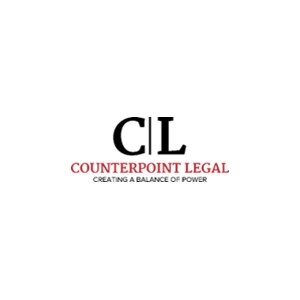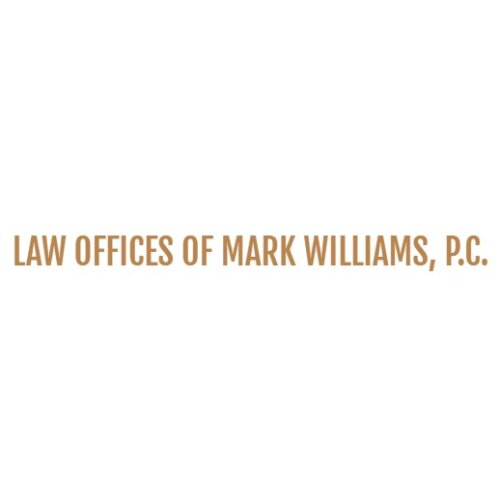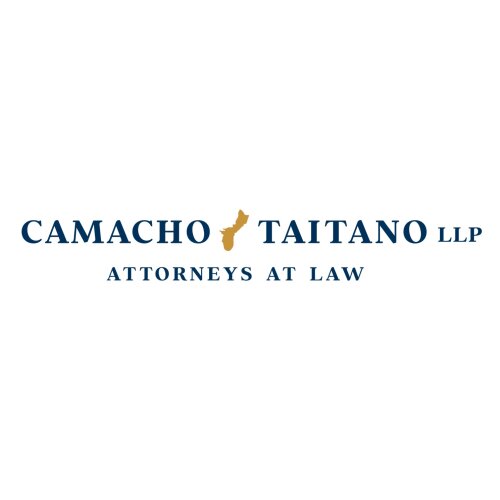Best Guardianship Lawyers in Hagåtña
Share your needs with us, get contacted by law firms.
Free. Takes 2 min.
List of the best lawyers in Hagåtña, Guam
About Guardianship Law in Hagåtña, Guam
Guardianship in Hagåtña, Guam, involves the legal responsibility assigned to an individual to care for another person, referred to as a ward, who is unable to manage their own affairs. This typically includes minors or adults with disabilities. The guardian has decision-making authority over the ward's personal, medical, and financial matters. Guam's legal framework is influenced by both local statutes and core principles found in broader U.S. guardianship laws, ensuring the protection and welfare of vulnerable individuals.
Why You May Need a Lawyer
Seeking legal advice in guardianship matters is crucial for numerous reasons. You may need a lawyer if:
- You are seeking to establish guardianship over a minor or an incapacitated adult and need guidance through the legal process.
- You are a current guardian facing challenges or disputes regarding your ward's care or your guardianship responsibilities.
- There are family disagreements about who should be appointed as guardian.
- You suspect that a ward is being neglected or abused by their current guardian.
- There are complexities involving assets, trusts, or estate planning for the ward.
Local Laws Overview
Guam's guardianship laws are designed to ensure the welfare and protection of those who cannot care for themselves. Key aspects include:
- The requirement for guardians to be appointed by the court, ensuring suitability and accountability.
- Periodic review of the guardianship arrangements by the court to ensure ongoing appropriateness.
- The ability for interested parties to challenge the suitability of a current guardian in court.
- Duties imposed on guardians to act in the best interests of the ward, including managing finances and ensuring necessary medical care.
Frequently Asked Questions
What is the difference between guardianship and conservatorship in Guam?
In Guam, guardianship typically refers to the legal responsibility over the personal and medical affairs of a ward, whereas conservatorship usually involves managing the financial affairs. However, these terms can sometimes be used interchangeably based on the context and case specifics.
How can I become a guardian in Hagåtña, Guam?
To become a guardian, you must file a petition in the Superior Court of Guam, demonstrating that the prospective ward is in need of a guardian and why you are a suitable choice. The court will review the petition and may conduct a hearing to make a formal appointment.
Can a guardianship be terminated or changed in Guam?
Yes, a guardianship can be terminated or modified if it is no longer in the best interest of the ward, if the ward regains capacity, or if there is a more suitable guardian. This requires filing a petition with the court and, often, a hearing.
What rights do wards have under guardianship in Guam?
Wards have the right to be treated with dignity and respect, have their preferences considered, receive proper care, and be placed in the least restrictive setting appropriate for them. Wards also have the right to regularly review their guardianship status.
What is the role of the court in guardianship cases?
The court oversees the appointment of guardians, ensures that the guardians are fulfilling their responsibilities, and protects the rights and welfare of the ward. The court also conducts periodic reviews and can amend or revoke guardianships as needed.
Is a guardian compensated for their duties in Guam?
Guardians may be entitled to reasonable compensation for their services, subject to court approval. The terms of compensation should be outlined at the time of the guardianship appointment or during regular reviews.
Can a guardian manage the educational needs of a minor ward?
Yes, a guardian has the authority to make decisions regarding the education of a minor ward, including school enrollment, special education services, and other educational needs. This responsibility is part of the overall duty to act in the best interests of the ward.
How are emergencies handled for wards under guardianship?
Guardians are expected to act promptly in emergencies to protect the welfare of the ward. This may include seeking immediate medical attention or taking other necessary steps to ensure their safety and well-being.
What happens if a guardian fails in their duties?
If a guardian fails in their duties, they can be removed by the court. Anyone with evidence of a guardian's misconduct can file a complaint, prompting a court review and potentially a hearing to consider removal or sanctions.
How can family members challenge a guardianship decision?
Family members can challenge a guardianship by filing a petition with the court showing that the current guardian is unsuitable or that the guardianship is unnecessary. They must provide evidence to support their claims to initiate a review.
Additional Resources
For further assistance, the following resources can be valuable:
- Office of the Attorney General of Guam: Offers guidance and resources related to guardianship laws.
- Guam Legal Services Corporation: Provides legal aid and services to qualifying individuals seeking guardianship advice.
- Superior Court of Guam: The court provides information on filing procedures and relevant guardianship laws.
Next Steps
If you need legal assistance in guardianship, consider the following steps:
- Consult with a qualified attorney specializing in guardianship law in Guam to discuss your specific circumstances.
- Gather all necessary documents and information related to the ward's personal and financial circumstances.
- File the appropriate petitions and documents with the Superior Court of Guam.
- Prepare for any court hearings by organizing evidence and information to support your case.
Addressing guardianship matters with legal support ensures that the process is smooth and that the interests of the ward are protected.
Lawzana helps you find the best lawyers and law firms in Hagåtña through a curated and pre-screened list of qualified legal professionals. Our platform offers rankings and detailed profiles of attorneys and law firms, allowing you to compare based on practice areas, including Guardianship, experience, and client feedback.
Each profile includes a description of the firm's areas of practice, client reviews, team members and partners, year of establishment, spoken languages, office locations, contact information, social media presence, and any published articles or resources. Most firms on our platform speak English and are experienced in both local and international legal matters.
Get a quote from top-rated law firms in Hagåtña, Guam — quickly, securely, and without unnecessary hassle.
Disclaimer:
The information provided on this page is for general informational purposes only and does not constitute legal advice. While we strive to ensure the accuracy and relevance of the content, legal information may change over time, and interpretations of the law can vary. You should always consult with a qualified legal professional for advice specific to your situation.
We disclaim all liability for actions taken or not taken based on the content of this page. If you believe any information is incorrect or outdated, please contact us, and we will review and update it where appropriate.










